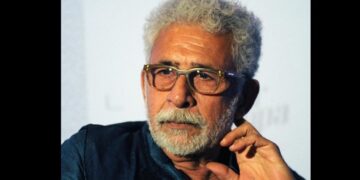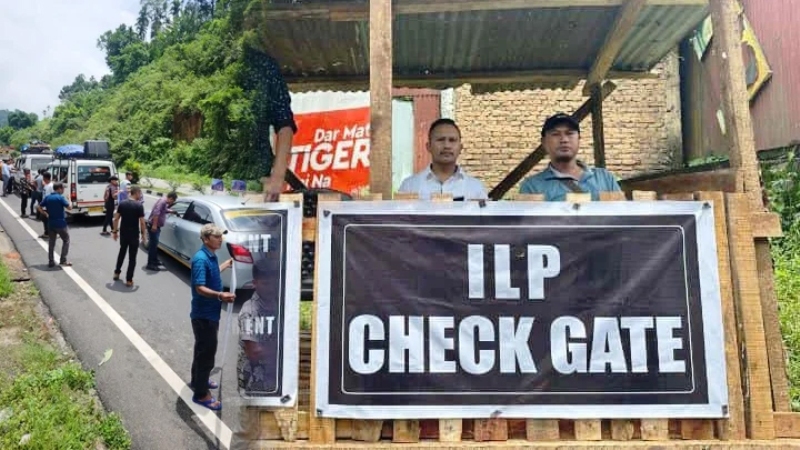Shillong: The Confederation of Meghalaya Social Organisations (CoMSO), a coalition representing the indigenous communities of Meghalaya, has written to Union Minister of Tribal Affairs Jual Oram, demanding immediate intervention on four critical issues concerning the protection and advancement of the state’s indigenous tribal communities.
The letter, dated April 2, 2025, highlights the long-standing grievances of the Khasi, Jaintia, and Garo tribes, who constitute over 86% of Meghalaya‘s population according to the 2011 Census.
“CoMSO remains dedicated to safeguarding the rights, identity, cultural heritage, and socio-economic interests of the indigenous communities of Meghalaya, specifically the Khasi, Jaintia, and Garo tribes, who constitute the aboriginal populations of our state,” it stated.
Drawing historical context from the Bengal Eastern Frontier Regulation (BEFR) of 1873 and citing the constitutional validity upheld by the Guwahati High Court, CoMSO argues that the ILP is crucial for protecting Meghalaya’s indigenous demographic, cultural, and economic interests.
The organisation pointed out that the Khasi, Jaintia, and Garo tribes, totalling approximately 2.5 million people and representing a mere 0.2% of India’s population (as per the 2011 Census), are vulnerable to being overwhelmed by unrestricted migration, especially given Meghalaya’s border with Bangladesh and Assam.
The organization highlights that the Meghalaya Legislative Assembly unanimously passed a resolution in December 2019 urging the Centre to implement the ILP, a demand that has yet to receive a definitive response despite similar implementation in Manipur.
CoMSO proposes a joint implementation committee and a modern digital permit system to address concerns about tourism and transit.
CoMSO seeks the Union Minister’s intervention to secure the Governor’s assent to the Meghalaya Residents Safety and Security (Amendment) Bill, 2020.
This bill, passed by the state assembly, aims to establish a registration system for non-residents staying in Meghalaya for more than 48 hours.
The organization argues that this legislation is vital for monitoring non-resident entry, preventing illegal immigration, and safeguarding the state’s demographic balance.
They express concern over the prolonged withholding of assent despite the bill falling under the State Legislature’s purview and cite constitutional provisions and precedents supporting its validity.
CoMSO urges the Centre to advise the Governor to grant immediate assent and to provide technical and financial assistance for its implementation.
Given that over 86% of Meghalaya’s population belongs to Scheduled Tribes (2011 Census), CoMSO demands the effective implementation of the existing 44% reservation policy for STs in Group C and D jobs within Central Government institutions operating in the state.
It expressed “grave concern” over the non-compliance by numerous central institutions, which often apply the national 7.5% reservation norm instead.
The organization highlights the resulting underrepresentation of tribal communities, economic marginalization of tribal youth, and a potential administrative disconnect.
CoMSO calls for a comprehensive notification reaffirming the 44% norm, a central monitoring committee, and special recruitment drives to address the backlog of reserved vacancies.
CoMSO calls for a comprehensive review and amendment of the Constitution (Scheduled Tribes) Order, 1950, arguing that the current classification, based on colonial-era understanding, fails to recognize the distinct identities of various sub-tribes and border communities within Meghalaya.
The organisation pointed out that the broad categorization under Khasi, Jaintia, and Garo overlooks the unique cultural and linguistic characteristics of sub-tribes like Lyngngam, Bhoi, War, Maram, and Nongtrai.
The organization emphasizes the need for proper recognition for cultural and identity preservation, administrative clarity, and alignment with international commitments.
CoMSO proposes a joint anthropological study, extensive community consultation, and the constitution of an expert committee to recommend necessary amendments.
Through this memorandum, CoMSO has amplified the voices of Meghalaya’s indigenous communities, urging the central government to address these critical issues with the urgency they deserve. The outcome of this appeal will have significant implications for the future of tribal rights, cultural preservation, and the socio-economic landscape of Meghalaya.
ALSO READ: Meghalaya Cabinet approves AYUSH Medical Service Rules
“We urge your esteemed office to consider our demands with the utmost seriousness and provide the necessary interventions to address these longstanding issues affecting the indigenous tribal communities of Meghalaya,” CoMSO stated.















